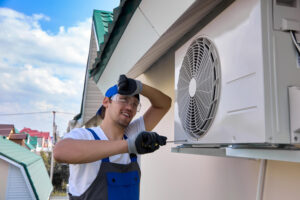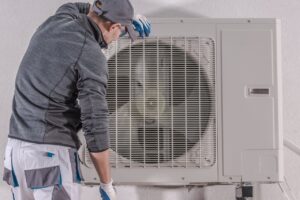Choosing a proper heating system for your house is necessary, especially if you live in a cold climatic region. Then a furnace is most likely the best option. However, with so many different types of furnaces available, it is easy to get confused over which one to buy. Thus, you need to decide on the correct type of furnace depending on your house structure and needs.
Types of furnace best for your home
Depending on the fuel source, these are the four types of furnaces that are available in the market:
Natural gas furnace
The natural gas furnace is the most common type of home furnace. A natural gas furnace is the most suitable furnace for your home if you reside near a natural gas line or have one pre-installed at your home. These furnaces offer powerful heating capabilities, and they can withstand extreme cold even in poorly insulated houses. They are also less expensive than electricity since natural gas is a less expensive fuel source.
Oil furnace
Oil is another popular fuel for heating buildings and houses. Oil is frequently more efficient than gas in terms of producing heat. But it can also be more expensive – depending on the time of year and the global situation. Therefore, oil furnaces are suitable for homes that have oil tanks buried near residences.
Electric furnace
Because every home has electricity, an electric furnace is always a viable option. Although more expensive to operate than a natural gas furnace, an electric furnace may nevertheless deliver significant levels of warmth while being less costly to install and having a longer service life. They are also viable alternatives if you do not wish to use natural gas in your home.
Propane furnace
A furnace that uses stored propane to run is a good choice if you do not have a natural gas line. The new propane furnaces are much more fuel-efficient than the older ones and can generate high heat levels. As a result, you do not have to burn as much propane to obtain the same amount of heat as a natural gas furnace. Install a direct vent on an external wall next while installing a propane furnace.
Different stages
Depending on how many stages you want your furnace to have, three different types of furnaces are available:
Single-Stage furnaces
Single-stage furnaces have a single fan speed and are available in 80% and 95% AFUE (Annual Fuel Utilization Efficiency). These furnaces are always running at 100% BTU (British Thermal Units) capacity. These are the most popular furnaces for single-story buildings, although they are typically the least efficient and loudest to operate.
Two-sta
Choosing a proper central heating system for your house is necessary, especially if you live in a cold climatic region. In most cold climates a furnace is likely to be the best option. However, with so many different types of furnaces available, it is easy to get confused over which one to buy. Thus, you need to decide on the correct type of furnace depending on your house structure and needs.
Different fuels means a different furnace
Depending on the fuel source, these are the four types of furnaces that are available in the market:
Natural gas furnace
The natural gas furnace is the most common type of home furnace. A natural gas furnace is the most suitable furnace for your home if you reside near a natural gas line or have one pre-installed at your home. These furnaces offer powerful heating capabilities, and they can withstand extreme cold even in poorly insulated houses. They are also less expensive than electricity since natural gas is a less expensive fuel source.
Oil furnace
Oil is another popular fuel for heating buildings and houses. Oil is frequently more efficient than gas in terms of producing heat. But it can also be more expensive – depending on the time of year and the global situation. Therefore, oil furnaces are suitable for homes that have oil tanks buried near residences.
Electric furnace
Because every home has electricity, an electric furnace is always a viable option. Although more expensive to operate than other central heating systems, an electric furnace may nevertheless deliver significant levels of warmth while being less costly to install and having a longer service life. They are also viable alternatives if you do not wish to use natural gas in your home.
Propane furnace
A furnace that uses stored propane to run is a good choice if you do not have a natural gas line. The new propane furnaces are much more fuel-efficient than the older ones and can generate high heat levels. As a result, you do not have to burn as much propane to obtain the same amount of heat as forced air systems. Ensure that proper the proper duct system is in place to ensure efficiency.
Different stages
There are three different staging’s when shopping for a standard or high efficiency furnace. This allows you to choose how many stages your equipment operates on.
Single-Stage furnaces
Single-stage furnaces have a single fan speed blower fan and are available in 80% and 95% AFUE (Annual Fuel Utilization Efficiency). These furnaces are always running at 100% BTU (British Thermal Units) capacity. These are the most popular furnaces for single-story buildings, although they are typically the least efficient and loudest to operate.
Two-stage furnace
Two-Stage Furnaces offer two fan speeds and an 80% to 92% AFUE. In addition, these furnaces have a 60% to 100% (if necessary) BTU capacity and create an even dispersion of heat.
Modulating variable speed furnace
Modulating Variable Speed Furnaces provide operational efficiency, uniform heat distribution, silent operation, and high comfort levels. The range of AFUE levels is from 80 to 98%.
To get the most suitable type of furnace, get in touch with US HVAC Warehouse, the best
Goodman furnace distributor. Contact us at
(888) 944-8684 or drop us a mail at
sales@ushvacwarehouse.com.




